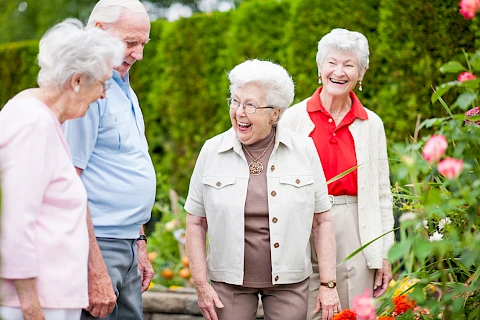
As we age, ensuring we receive the right nutrients becomes increasingly essential to maintaining our overall well-being. One nutrient, in particular, plays a crucial role in our physical health and emotional and mental states. That nutrient is vitamin D. Often overlooked, vitamin D offers tremendous benefits to seniors, especially when it comes to boosting mood and improving mental health.
The Role of Vitamin D in Mood Regulation
Vitamin D is often associated with bone health but also plays a vital role in our brain's functions. It helps regulate mood and ward off depression. Several studies have pointed to a link between vitamin D deficiency and higher rates of depression among seniors. Indeed, ensuring adequate vitamin D levels can help improve mood stability and uplift seniors' mental and emotional health.
The Importance of Maintaining Adequate Vitamin D Levels
As we age, our skin's ability to synthesize vitamin D decreases, and this can lead to a deficiency. A lack of vitamin D in the body can not only lead to physical health issues like osteoporosis but also mental health problems, including depression and cognitive decline. Remarkably, around half of seniors might be deficient in vitamin D. Therefore, maintaining adequate levels of this essential vitamin is incredibly crucial for the elderly population's overall well-being.
Safe Sun Exposure for Vitamin D
Sun exposure is one of the most effective ways to naturally get vitamin D. However, seniors must practice safe sun exposure to avoid skin problems. Aim for early morning or late afternoon sun, which is not as harsh. Also, expose your skin for 15-30 minutes daily, depending on your skin type.
Dietary Sources of Vitamin D
Besides sunlight, specific dietary sources can help increase seniors' vitamin D levels. Foods such as fatty fish (salmon, mackerel), fortified dairy products, and egg yolks are rich in vitamin D. Incorporating these foods into a senior's diet can be a practical way to boost their vitamin D intake. Of course, consult with your care provider before making any major changes to your diet.
When to Consider Vitamin D Supplements
There might be situations when diet and sun exposure aren't enough to maintain adequate Vitamin D levels. Certain signs, such as fatigue, bone pain, mood changes, and muscle weakness, might indicate the need for vitamin D supplementation. It's vital that any decision regarding supplements be made in consultation with a healthcare professional. They can recommend safe and effective supplements tailored to a senior's specific needs.
We Help Improve Quality of Life for Seniors
Vitamin D plays an instrumental role in not only the physical but also the mental health of seniors. Ensuring adequate vitamin D levels can significantly boost mood and overall quality of life for the elderly. At Senior Helpers San Mateo, we offer various services that can help maintain vitamin D levels, including help getting outside or assistance with meal prep. If you or your loved one are in San Mateo, Redwood City, Burlingame, or Millbrae and need assistance with in-home senior care, don't hesitate to reach out to us to discuss our range of care options.